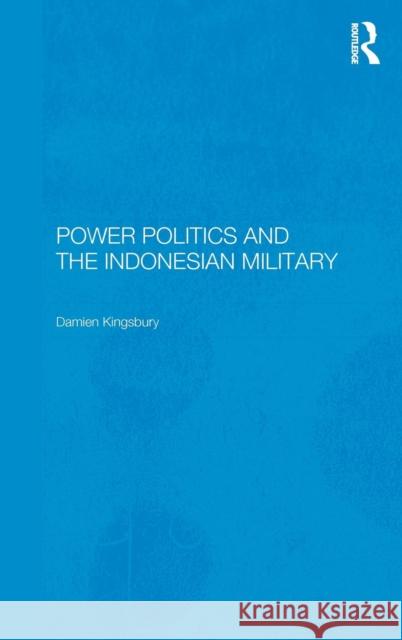Power Politics and the Indonesian Military » książka
Power Politics and the Indonesian Military
ISBN-13: 9780415297295 / Angielski / Twarda / 2003 / 304 str.
Power Politics and the Indonesian Military
ISBN-13: 9780415297295 / Angielski / Twarda / 2003 / 304 str.
(netto: 676,35 VAT: 5%)
Najniższa cena z 30 dni: 654,86
ok. 16-18 dni roboczych.
Darmowa dostawa!
Throughout the postwar history of Indonesia, the military have played a key role in the politics of the country and in imposing unity on a fragmentary state. The collapse of the authoritarian New Order government of President Suharto weakened the state and the armed forces briefly lost their grip on control of the archipelago. However, under President Megawati, the military has again begun to assert itself, and re-impose its heavy hand on control of the state, most notably in the fracturing outer provinces. Based on extensive original research, this book examines the role of the military in Indonesian politics. It looks at the role of the military historically, examines the different ways it is involved in politics, and considers how the role of the military might develop in what is still an uncertain future.
Throughout the postwar history of Indonesia, the military have played a key role in the politics of the country and in imposing unity on a fragmentary state. The collapse of the authoritarian New Order government of President Suharto weakened the state and the armed forces briefly lost their grip on control of the archipelago. However, under President Megawati, the military has again begun to assert itself, and re-impose its heavy hand on control of the state, most notably in the fracturing outer provinces. Based on extensive original research, this book examines the role of the military in Indonesian politics. It looks at the role of the military historically, examines the different ways it is involved in politics, and considers how the role of the military might develop in what is still an uncertain future.











